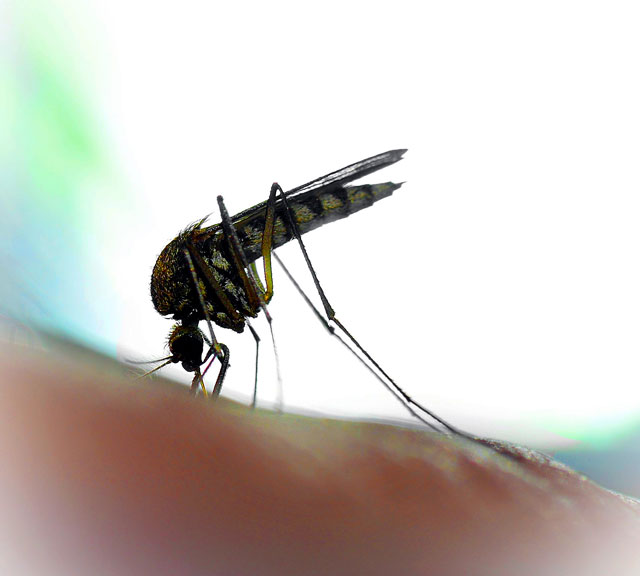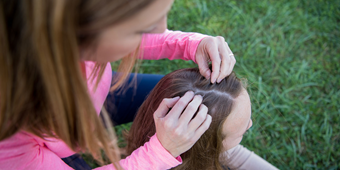Get the DEETS on West Nile Virus

Answer a few questions and we'll provide you with a list of primary care providers that best fit your needs.
It’s summertime and the living is easy. But those backyard BBQs, camping trips and hikes might make it easier for mosquitos to get to you.
Besides the itch, mosquito bites are a problem because they can transmit diseases like the West Nile virus. Mosquitoes become infected by biting birds that carry the virus. The virus spread to the United States in the summer of 1999 and is now found in nearly every state.
Stay indoors between dusk and dawn because that’s when mosquitos — especially the ones that carry the West Nile virus — are most active.
West Nile Symptoms: Mostly Harmless, Rarely Fatal
Fortunately, most people who get the West Nile virus have no symptoms at all. One in five people who get the virus develop a fever (known as West Nile fever) and other mild symptoms usually three to 14 days after being bitten. Symptoms may last three to six days and can include skin rash, fever, headache, nausea, vomiting, diarrhea, loss of appetite, swollen lymph nodes and an achy feeling in the back and muscles.
However, if West Nile virus enters the brain, it can be life-threatening.

Fewer than 1 percent of infected people develop meningitis, inflammation of the tissue that surrounds the brain and spinal cord, or encephalitis, inflammation of the brain.
Symptoms of the more severe West Nile virus illness can include a sudden high fever, severe headache, stiff neck, feeling disoriented or confused, tremors or muscle jerks, seizures, coma and weakness or partial paralysis. These symptoms may last several weeks. Contact your doctor if you have any of these symptoms and have recently been bitten by a mosquito.
Prevention is Key
Currently, there is no vaccine or medication for West Nile virus. The only way to prevent it is to reduce the number of mosquitos that you come into contact with.
Here are our top five ways to reduce your exposure to mosquito bites during summer:
- Keep them outside. Repair screens on your windows and doors promptly. Or use air conditioning to stay cool instead of keeping the windows open.
- Wear insect repellent with a high percentage of DEET. These insect repellents can provide long-lasting protection against mosquitos.
- Empty standing water. Since mosquitos lay their eggs in water, it’s a good practice to remove standing water around your home. Common places that might entice mosquitos to breed include flowerpots, gutters, buckets, pool covers and bird baths.
- Limit your exposure. Stay indoors between dusk and dawn because that’s when mosquitos — especially the ones that carry the West Nile virus — are most active.
- Wear protective clothing. When you need to go outside, don’t give mosquitos too much exposed skin to feast on. Wear long sleeves, pants and light-colored clothing.
Answer a few questions and we'll provide you with a list of primary care providers that best fit your needs.
Source: Centers for Disease Control and Prevention; Medline Plus; AAFP




